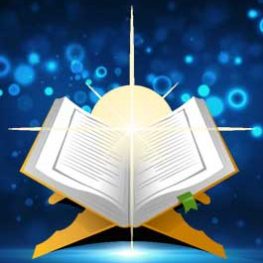Objectives:
In Islamic Thought and Studies, we teach students Arabic Language to the extent that they can read and grasp the traditional texts (i.e. Quran, Hadith, Fiqh, and History) in Arabic and utilise them in their research. Basic communicative skills in Arabic are also nurtured. Students are acquainted with the fundamentals of religious sciences (i.e. Uloom ul Quran, Usool e Tafseer, Usool e Hadith, Uloom e Sharia etc). They are also taught Social Sciences with an emphasis on Political Science, History and Economics so that they can develop a better understanding of modern episteme of knowledge and critically engage with the same in accordance with the Islamic values.
Eligibility:
Those students can apply for this course who
- have completed graduation (in any subject) from a university.
- can read and write in Urdu, Hindi (or any regional language) and English.
- have an excellent academic record.
Syllabus:
Language
Foundations of Linguistics ––– Concept of languages: Origin & Families; Linguistic changes and reconstruction; Language in spoken and written modes; writing system; structure of language (Phonological, Morphological, Syntactic, Semantic); Relevance of linguistics to others fields of knowledge; History and evolution of Urdu/Hindi.
Arabic ––– Parts of Speech (Verb, Noun, Particles); Arabic case system (Nominative, Genitive and Accusative); Numbers; Definite and indefinite; Feminine; Etymology; The trilateral & four-letter verbs; Intransitive & transitive verb; Active & passive voice; Tenses; Selected Texts
Uloom e Sharia
Quran ––– Introduction; Healthy Recitation; Memorisation of selected portions; Exegesis of seleted portions of Quran besides complete 30th Juz; Revelation (Wahi) (History, Reasons, Compilation, Abrogation) Why a Miracle?
Hadith ––– Definition of Hadith; The different sciences of Hadith; Development of the sciences of Hadith; Classification of Hadith; Orientalist Perspectives on Hadith; Revisionist Perspectives on Hadith; Mukhtasar Mishkatul Masabih.
Fiqh ––– Definition Fiqh and Usool ul Fiqh; Development of Fiqh and Usool ul Fiqh; The Approach of the Mutakallimun and Fuqaha; The Different Types and Levels of Ahkam; The Sources of Laws: The Quran, The Sunnah, Ijma, Qiyas; Other Sources of Law; Abrogation; Rules of deducing Ahkam; Ijtihad and Taqlid.
Social Sciences
Foundations of Social Sciences ––– Subject matter of social science; Development of social science; Difference between principles of western and Islamic social sciences; Conceptual independence.
Political Science ––– Discipline of Political Science; Core Political Concepts; Methods of governance; Modern Ideologies; Political Thinkers; Selected Issues.
History ––– Discipline of History; Philosophy of History; Selected Periods from world history; Selected periods from Indian history; Selected periods from Muslim history; Important World Revolutions; and Historical Controversies.
Economics ––– Discipline of Economics; Microeconomic Theories; Macroeconomics; Islamic Economics; History of Islamic Financial Institutions; Islamic Modes of Finances.
Making sense of Sociology ––– Introduction; Family; Class; Tribe; Auguste Comte; Emile Durkheim; Karl Marx; Shah Waliullah; Ibn Khaldun.
Making sense of Philosophy ––– Introduction; Argument; Basic Principles of Greek, Arab and Chinese Philosophy; Truth; Justice; God, religion and suffering; Euthanasia; Black and white thinking and grey-area; Islamophobia.
General Studies ––– Hinduism, Christianity, Islam, Seerah and its contemporary relevance, global Islamic movements, Indian Constitution.
Course Features
- Lectures

